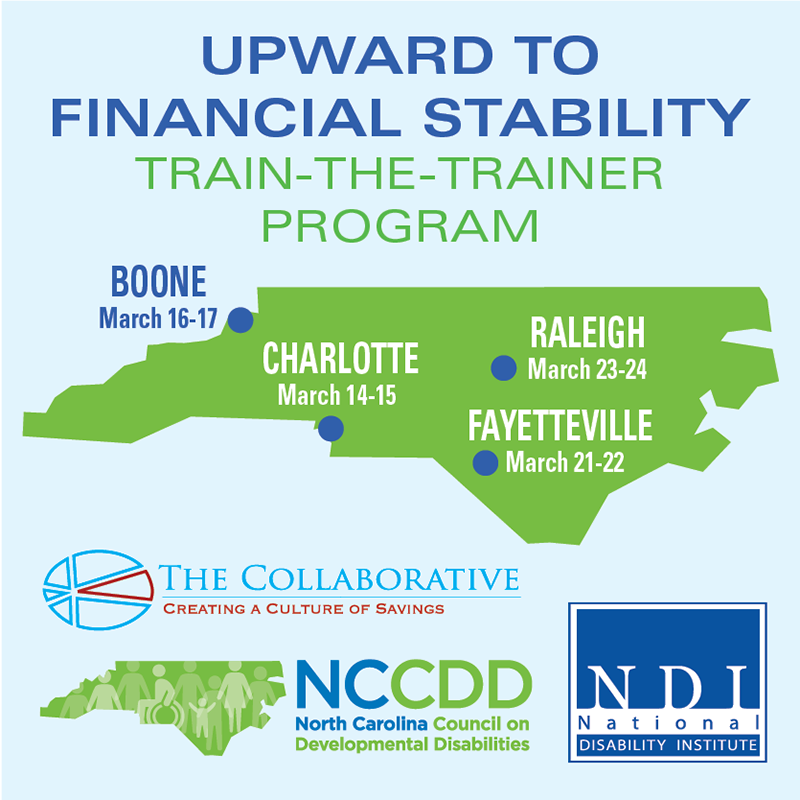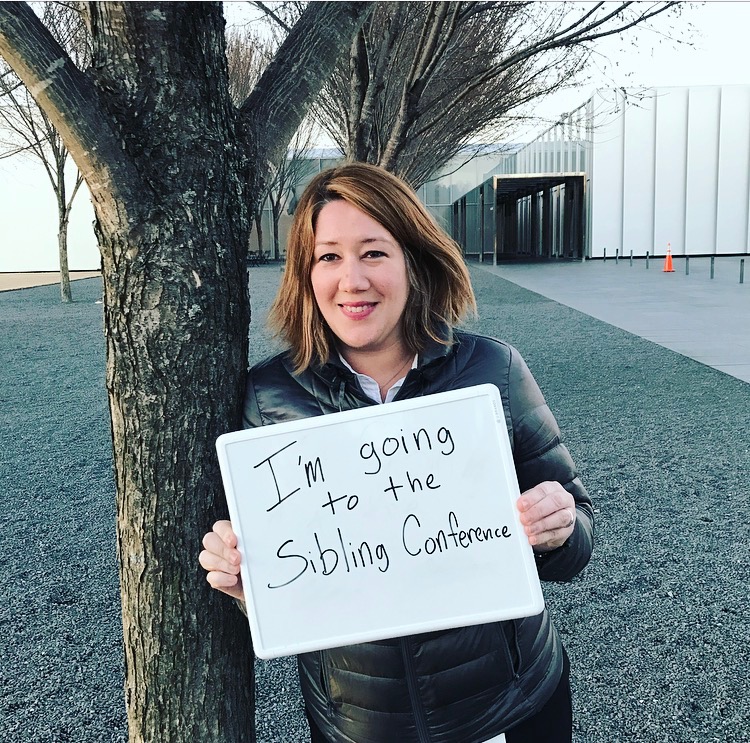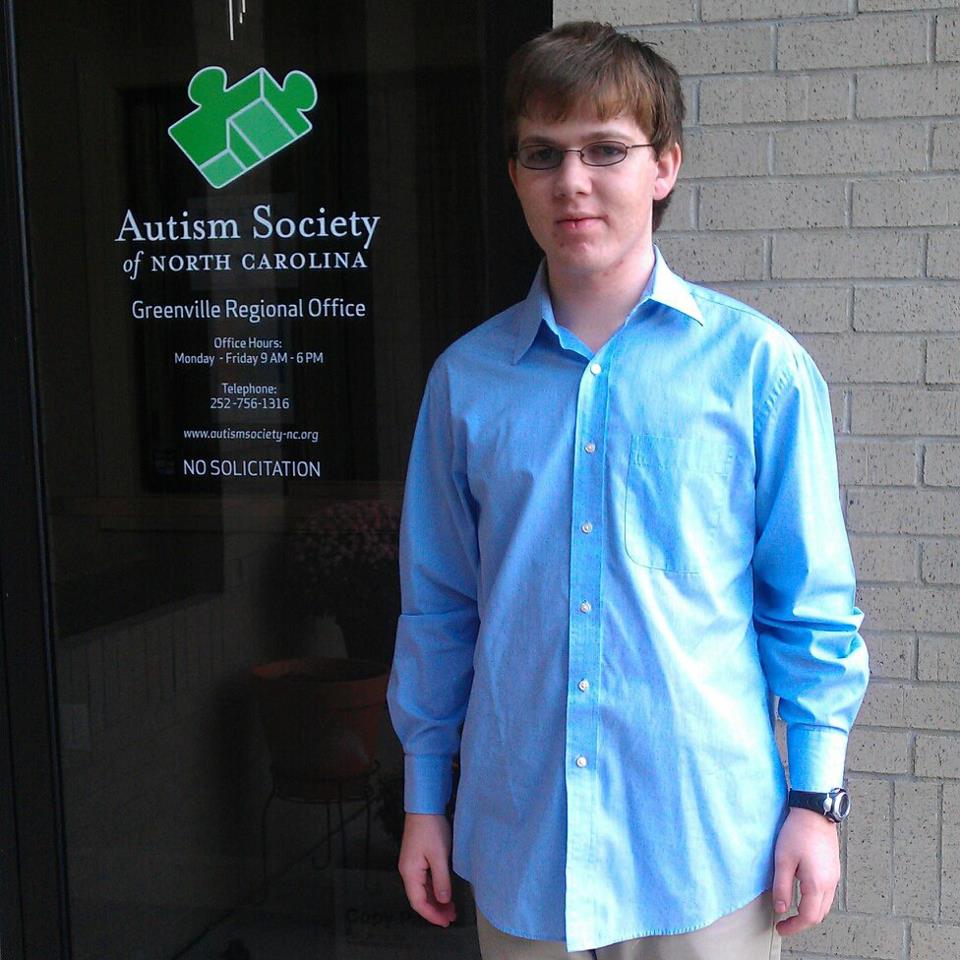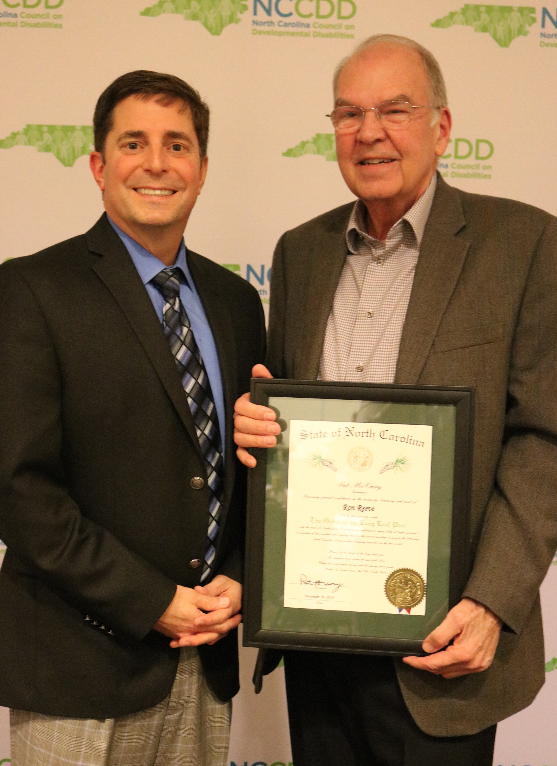February 2017: Highlights and Hot Topics

- Upward to Financial Stability Hosts Four Seminars
-
NC Sibs hosts first ever state conference for adult
siblings of people with disabilities -
Ron Reeve Receives Order of the Long Leaf Pine for Service to NCCDD
- Read the Newsletter Online
A Message from Our Executive Director
February is the formal beginning of a new year for the NCCDD. It is the first meeting of 2017 and leads us into the first full year of the Council’s new Five Year Plan. The year will be marked by new opportunities to focus on our priorities for asset development, community living and leadership development for people with intellectual and other developmental disabilities (I/DD) and families. In addition, this is a time during which we must each continue to be as informed as possible. There will be many changes in policy, and these policy changes will impact the lives of people with I/DD.
I strongly encourage you to keep seeking information and to learn as much as you can about the potential impact of proposed changes in policies and how this may impact supports for people. While you learn, and as you actively engage in advocacy, remember that Congress recognizes that “disability is a natural part of the human experience that does not diminish the right of individuals with developmental disabilities to live independently, to exert control and choice over their own lives, and to fully participate in and contribute to their communities through full integration and inclusion in the economic, political, social, cultural and educational mainstream of United States society.” The protections that have been established and advanced over the years are helping to increase opportunities for people to live lives that are marked by self-determination, integration, productivity, inclusion and independence that are important to everyone. As such, our advocacy is non-partisan and strong federal and local protections are needed to support diversity of communities, to reduce stereotypes and to expand choices so that all may contribute.
This edition of Highlights and Hot Topics contains important policy updates that will help you to be more informed. In addition, asset development opportunities are available through our Upward to Financial Stability Train-the-Trainer seminars and information is available about the first ever state conference for adult siblings. We are excited to also include a personal story of someone using the Medicaid buy-in to better balance independence with safety-net supports.
We are heading into March, which is also National Developmental Disabilities Awareness month. We are filling the NCCDD calendar with events throughout the month of March to show “Life Side by Side.”
Before closing, I also wish to recognize Ron Reeve, former Chair of the Council for his passionate dedication, leadership and service. Ron was awarded the Order of the Long Leaf Pine, one of the State's highest honors for individuals who have made significant contributions to the State of North Carolina.
As always, we love hearing from the community about your thoughts, events and even your ideas on what can make your community a more inclusive place to for people with I/DD to live, work and play. Contact us here.
Chris Egan
Executive Director
State
NC General Assembly: The legislative session is underway with only a handful of bills filed at this point. The crossover deadline is April 27. This is the date by which a bill must pass out of either the House or the Senate in order to remain eligible for consideration in the remainder of the session. The bills that do not pass by this date are effectively dead for the session. Bills related to I/DD will be tracked and reported on. The Joint Appropriations on Health and Human Services met on Tuesday February 21. This initial meeting was primarily to introduce members and staff and establish guidelines. The other Appropriations committees also met in the first steps toward a state budget. The Senate will pass a budget first this year, followed by the House, then a conference committee will be established to deal with any differences in the budget. According to the HHS calendar, the goal is to have a budget passed June 23.
Concerns Raised about State’s Service System for Individuals with I/DD
On February 8, 2017, Disability Rights North Carolina (DRNC) outlined to the Secretary of Department of Health and Human Services (DHHS) their concerns about the state’s service system for people with I/DD. They identified factors that have led to an institutional bias and lack of adequate home and community based services. DRNC has asked DHHS to work on issues that include lack of case management, individual budget cuts and long waits for services. However, because of urgent needs, DRNC is preparing for possible litigation.
Innovations Waiver Resources
DRNC has also provided valuable information for individuals and families on the Innovations Waiver through written guides and videos. “Changes to the Innovations Waiver” and “Base Budgets and Supports Intensity Scales” are both available on their website: http://www.disabilityrightsnc.org/videos. (This link is no longer active.)
Federal
The Republican leadership in the House released a proposal to repeal the Affordable Care Act (ACA) and fundamentally alter the Medicaid program. This proposal would repeal the ACA expansion, individual and employer mandates, and replace subsidies low-income individuals and families use to purchase insurance with tax credits. (No word yet on which consumer protections or benefits would remain.) It also proposes broader use of Health Savings Accounts (HSA) and the reintroduction of High Risk Pools. This same proposal seeks to sever the current mandatory Medicaid funding partnership between states and the federal government and offer two options which would shift costs and risk to states and families: Medicaid Per Capita Caps or a Block Grant.
You can read a joint statement of concern from NACDD, AUCD, and NDRN regarding proposed cuts to Medicaid here.
Many thanks to those of you who responded to our earlier action alert from the NACDD. We will keep you updated on additional opportunities to educate and inform.
Background information (provided by The Arc of NC) you may find helpful:
- The Affordable Care Act is critically important to the disability community. It built consumer rights, essential health benefits and protections into all insurance products.
- Health Savings Accounts typically include low premiums (the amount you pay per month) and high deductibles (an individual or family’s out of pocket expense). Several health policy groups warn that low-income participants and those with high healthcare utilization will assume higher risk and fewer benefits.
- Medicaid is currently a mandatory program (meaning those who meet the requirements must receive the benefit) and a state-federal partnership. Roughly for every 33 cents North Carolina spends, the federal government matches with 67 cents. States can choose to offer federally matched “optional services” like the Innovations Waiver. These optional services are currently funded by the roughly ⅓ state, ⅔ federal funding ratio mentioned above.
- Block Grants and Per Capita Caps are both cuts to Medicaid, would sever the matched funding states receive from the federal government, and increase financial risks to states and individuals. When responding to anticipated funding shortfalls consistent with Congressional Budget Office estimates, states would need to reduce costs. Likely options include reductions to:
1. eligibility,
2. Services (either the amount or array),
3. provider rates, and/or
4. community based services and supports among others.
Upward to Financial Stability Hosts Four Seminars NCCDD’s Upward to Financial Stability initiative, led by the National Disability Institute (NDI) and The Collaborative, will offer four free, two-day Train-the-Trainer sessions across North Carolina in March. These events are designed to provide practitioners, service professionals and self-advocates with an understanding of how individuals with disabilities can become more self-sufficient and less dependent on benefits while building a better financial future that promotes choice and greater community participation.
NCCDD’s Upward to Financial Stability initiative, led by the National Disability Institute (NDI) and The Collaborative, will offer four free, two-day Train-the-Trainer sessions across North Carolina in March. These events are designed to provide practitioners, service professionals and self-advocates with an understanding of how individuals with disabilities can become more self-sufficient and less dependent on benefits while building a better financial future that promotes choice and greater community participation.
Training topics from the Upward to Financial Stability curriculum include money, access to financial services, credit, housing, Social Security work incentives, self-employment and more. The dates and cities are:
- Charlotte: March 14-15
- Boone: March 16-17
- Fayetteville: March 21-22
- Raleigh: March 23-24
Each session will occur from 9 AM to 4 PM on both days, and lunch will be provided. Individuals interested in attending a session must register through the following link: https://ndiinc.formstack.com/forms/nc_training_2017
Michael Roush of NDI and Donna Gallagher of The Collaborative as well as North Carolina’s Master Trainers will lead these exciting, informative sessions. Master Trainers are talented individuals who attended a Train-the-Trainer session last year and completed a two-day Master Training course in Raleigh last September.
The Upward to Financial Stability initiative encourages and supports the partnership of public and private sectors in spreading financial awareness for people with I/DD. It is designed to create opportunities for people with I/DD to learn how to build financial assets to enjoy a better, more secure future.
Celebrate March as Developmental Disabilities Awareness Month by attending one of these sessions and empowering yourself or individuals you work and live with!
NC Sibs Hosts First State Conference for Adult Siblings of People with Disabilities
 The first ever North Carolina conference for adult siblings of individuals with developmental disabilities will be held on March 25, 2017 in Carrboro, NC. The conference aims to connect siblings with one another and provide support and information specific to the unique aspects of the adult sibling relationship.
The first ever North Carolina conference for adult siblings of individuals with developmental disabilities will be held on March 25, 2017 in Carrboro, NC. The conference aims to connect siblings with one another and provide support and information specific to the unique aspects of the adult sibling relationship.
The conference aims to make connections with other NC siblings, share and gain support and learn how to access supports for them and their siblings. The conference will cover a wide range of topics with well-known community leaders, including: Supporting Siblings: Advancing Involvement and Leadership and Future Planning: What sibs need to know today -- for a better tomorrow!
The conference is hosted by NC Sibs, an initiative funded by the North Carolina Council on Developmental Disabilities (NCCDD). It supports the Council’s Five Year Plan goal of increased advocacy for people with intellectual and other developmental disabilities (I/DD). It is sponsored by NCCDD and First in Families of North Carolina (FIFNC). It is offered in partnership with Sibling Leadership Network and InFocus Advocacy.
Who and What: North Carolina Siblings Conference
When: Saturday, March 25, 2017
10 AM – 5 PM
6 PM – Sibs InFocus Reception
Where: Hampton Inn & Suites
370 E Main St #100
Carrboro, NC 27510
For more information, visit ncsibs.org/#conference
Medicaid Buy-In Success Story: Britton Scercy Under Medicaid, states may offer a “buy-in” option for workers with disabilities to make Medicaid available individuals who would otherwise be ineligible for Medicaid due to income. This option allows people to transition to work without having to face the immediate loss of health insurance coverage. In 2005, the North Carolina General Assembly opted to make the Medicaid buy-in available through a law known as Health Coverage for Workers with Disabilities (N.C. General Statute §108A-54.1), which covers working individuals with a disability between the ages of 16 and 65. Certain fees and premiums may be charged on a sliding scale based on income, but there is no income limit.
Under Medicaid, states may offer a “buy-in” option for workers with disabilities to make Medicaid available individuals who would otherwise be ineligible for Medicaid due to income. This option allows people to transition to work without having to face the immediate loss of health insurance coverage. In 2005, the North Carolina General Assembly opted to make the Medicaid buy-in available through a law known as Health Coverage for Workers with Disabilities (N.C. General Statute §108A-54.1), which covers working individuals with a disability between the ages of 16 and 65. Certain fees and premiums may be charged on a sliding scale based on income, but there is no income limit.
One such individual who has benefited from the Medicaid buy-in is Britton Scercy. Britton is a bright young man with a great memory and a great sense of humor who enjoys sharing his phenomenal knowledge of Disney facts. He also has autism and spent most of his elementary and middle school years in general education with support from teachers who understood autism.
As he transitioned to high school, it was clear that the high school environment with both academic and social demands would challenge him. His mother and biggest advocate, Jill Scercy, worked with school and community staff to proactively plan for his future after high school. Britton receives community supports through the Innovations Waiver (formally known as the Community Alternatives Program, or CAP) to help him develop skills to improve his independence. During his high school studies, one of the best experiences for him was his work experience that formed part of his Occupational Course of Study graduation requirements. Through this program, a job coach found non-paid job experiences for Britton to try; here he found a purpose. It became clear that, rather than attending college, Britton could thrive in the workforce. As part of the post-secondary planning they did, Jill met with an individual from the Social Security Administration about the benefits that Britton was receiving and how he would be able to continue to receive them while working with the provisions put into place for individuals with disabilities who want to work.
Britton soon received his high school diploma with his peers, but an even prouder moment came shortly afterwards when he got a part-time job offer (four hours per day) to become an office assistant at the Autism Society of North Carolina’s Greenville Regional Office. When asked, he would proudly say, “I organize stuff and I clean the office.” He became a true “co-worker,” looked forward to sharing facts with his co-workers, and felt good about the work that he was doing and the new skills he learned daily.
In November, just four months after Britton started his job, his mother, Jill, attended his annual Medicaid eligibility meeting since he was receiving Medicaid through the CAP waiver. She arrived at the meeting prepared with Britton’s pay stubs and proudly displayed them to the Department of Social Services worker, who entered the numbers into her database and informed her: “I’m sorry, he makes too much money with his disability and earned income. If he continues to work, he will lose his benefits.” Jill was disappointed because she had met with a Social Security representative and received assurance that Britton would be able to work and still keep his community support services since he was an individual with a disability. Jill begged her not to discontinue his services while she searched for answers.
Jill was disappointed because she had met with a Social Security representative and received assurance that Britton would be able to work and still keep his community support services since he was an individual with a disability. Jill begged her not to discontinue his services while she searched for answers.
Jill called Britton’s employer, explained the situation, and asked if perhaps he could continue to come to work each day without pay until she could resolve the issue so as not to jeopardize his eligibility for community support services, and they agreed. For the next two weeks, Jill contacted elected officials and reached out to advocacy organizations to find answers. She learned that in the Medicaid manual, the wording was there to help individuals with disabilities retain their access to Medicaid while trying to establish stability in a job. But the words “Unless the individual receives Medicaid through CAP” made Britton unable to access all of those supports put into place to help individuals with disabilities go to work without losing their benefits.
Jill made a phone call to NCCDD network partner Disability Rights North Carolina and connected to someone who listened to Britton’s story and sympathized with Jill. Over the next 367 days, Jill stayed in close contact with attorney Lisa Grafstein, who provided unending support and encouragement. Lisa kept Jill informed and invited her to the court when she went before the judge on behalf of Britton and many other individuals with similar needs.
Once the judge ruled in Britton’s favor, Britton’s employer began paying him his earnings of $7.25 an hour for 16 hours a week. He has grown socially, saying that his co-workers “have become my good friends,” and he has gained numerous skills from participating in a work environment in his community.
Meanwhile, his supervisor says, “He continues to learn new skills and increase his flexibility. He always gives me a different perspective and reminds me why I work in this field. . . . He definitely challenges me to think in new ways!” His co-workers state that he contributes to the agency’s success and their understanding of autism. He continues to develop skills that will allow him to live more independently, and he is saving money for his next trip to his beloved Walt Disney World.
For more information about North Carolina’s Medicaid buy-in, click here
March is Developmental Disabilities Awareness Month! In March, we will be honoring National Developmental Disabilities Awareness Month along with all the Councils across the country. The entire month is an opportunity to promote respect for people with intellectual and other developmental disabilities (I/DD) and to educate others about the abilities people with I/DD possess. The campaign is also designed to raise awareness about the inclusion of people with developmental disabilities in all facets of community life, as well as awareness of the barriers that people with disabilities still face at times in connecting to the communities in which they live.
In March, we will be honoring National Developmental Disabilities Awareness Month along with all the Councils across the country. The entire month is an opportunity to promote respect for people with intellectual and other developmental disabilities (I/DD) and to educate others about the abilities people with I/DD possess. The campaign is also designed to raise awareness about the inclusion of people with developmental disabilities in all facets of community life, as well as awareness of the barriers that people with disabilities still face at times in connecting to the communities in which they live.
The NCCDD community is filling the calendar with events throughout the month such as:
- Upward to Financial Stability Train-the-Trainer seminars being held in Charlotte, Boone, Fayetteville and Raleigh.
- US Disabled Golf Association’s golf clinics every Saturday in March in Raleigh.
- Triangle Down Syndrome Network’s Advocacy Day at the General Assembly Building in Raleigh.
- NC Sibs Conference in Carrboro.
- Vaya Health's Supported Living: A Shared Vision Conference in Greensboro.
Get more details and how you can participate at : http://nccdd.org/dd-awareness-month-across-north-carolina.html
We also encourage you to share your stories on social media, and be sure to include the hashtag #DDAwareness17 so we can like and share your stories!
Ron Reeve Receives Order of the Long Leaf Pine for Service to NCCDD Ron Reeve, Chair of the North Carolina Council on Developmental Disabilities, received The Order of the Long Leaf Pine for his service as the chairman of NCCDD on February 9, 2017 in Cary, NC.
Ron Reeve, Chair of the North Carolina Council on Developmental Disabilities, received The Order of the Long Leaf Pine for his service as the chairman of NCCDD on February 9, 2017 in Cary, NC.
“We are all here for one purpose and that is to improve the lives of people with intellectual and developmental disabilities,” said Reeve at his reception. “It’s a calling; one that takes time, passion and love. I want to thank all of you because without you, this wouldn’t happen. So, I accept this honor on behalf of all of you.”
Reeve also reminded the Council to continue to focus on high expectations, full inclusion and to collaborate with each other as they continue the very important work of the Five Year Plan goals and objectives.
The Order of the Long Leaf Pine, one of North Carolina's highest civilian honors, has become a crowning cap to a career of social service. Since its inception more than 50 years ago, more than 15,000 men, women, businesses and animals have received the award.